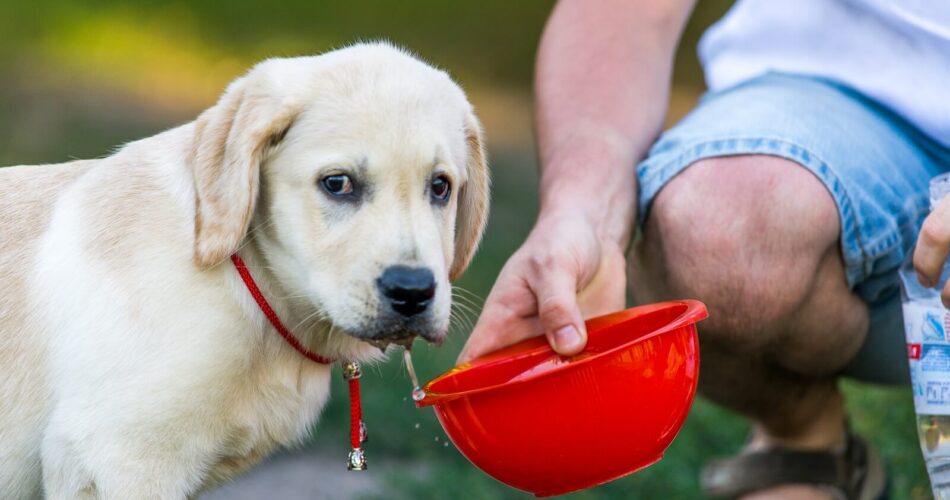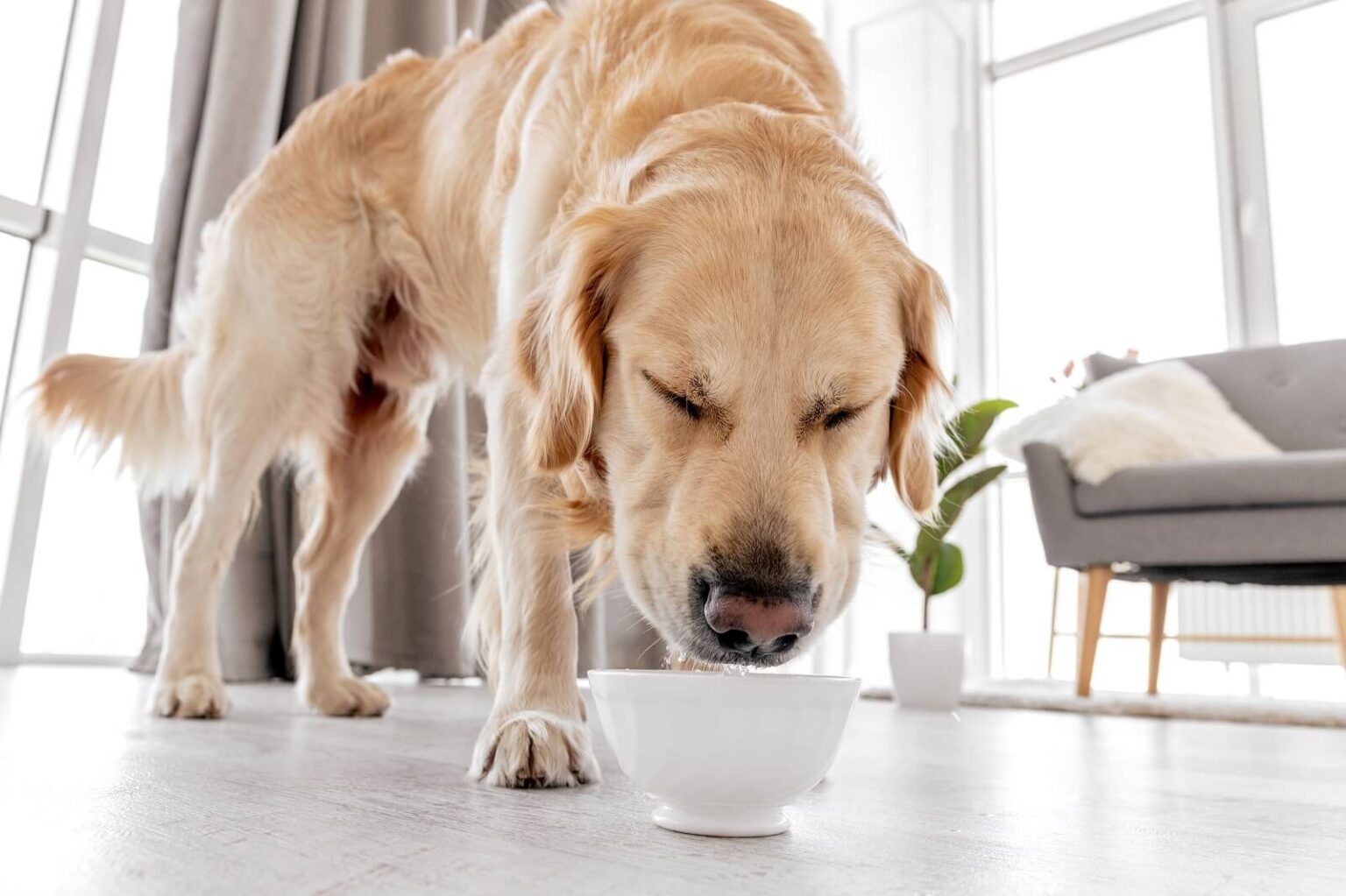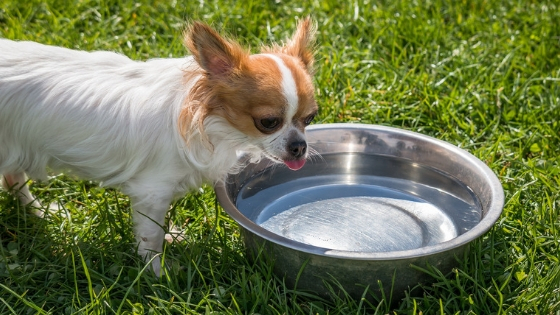old dog drinking a lot of water Why old dog drinking a lot of water?
As our furry companions age, it is not uncommon to notice changes in their drinking habits, with some old dogs drinking a lot of water. This may leave pet owners wondering why their senior canine friend is suddenly showing an increased thirst. Understanding the reasons behind this behavior is essential in ensuring the health and well-being of our aging pets.
The Importance of Hydration
Proper hydration is crucial for dogs of all ages, and it becomes even more significant as they enter their golden years. Water is vital for various bodily functions, including digestion, circulation, and temperature regulation. It helps maintain proper organ function, keeps joints lubricated, flushes out toxins, and supports a healthy coat and skin.
Moreover, older dogs may be more prone to certain health conditions that can benefit from increased hydration. For instance, kidney disease, diabetes, and certain medications can lead to dehydration. By providing ample fresh water, we can help mitigate these risks and support our senior dogs’ overall well-being.
Common Causes of Increased Thirst in Older Dogs
When it comes to understanding why old dogs may suddenly drink a lot of water, there can be various underlying causes. It is essential to observe any additional symptoms or changes in behavior and consult with a veterinarian for an accurate diagnosis. However, some common reasons for increased thirst in senior dogs include:
- Kidney Disease
 Kidney disease is prevalent among older dogs and can cause increased thirst and urination. As the kidneys’ function declines, they may struggle to conserve water, leading to dehydration and the constant need for additional fluids. Monitoring water intake and seeking veterinary care is essential to manage this condition and ensure your dog’s comfort.
Kidney disease is prevalent among older dogs and can cause increased thirst and urination. As the kidneys’ function declines, they may struggle to conserve water, leading to dehydration and the constant need for additional fluids. Monitoring water intake and seeking veterinary care is essential to manage this condition and ensure your dog’s comfort.
- Diabetes
 Diabetes, both type 1 and type 2, can also contribute to excessive thirst in senior dogs. When there is insufficient insulin production or utilization, blood sugar levels rise, causing the body to attempt to eliminate the excess glucose through increased urination. This, in turn, leads to dehydration and a subsequent increase in water consumption.
Diabetes, both type 1 and type 2, can also contribute to excessive thirst in senior dogs. When there is insufficient insulin production or utilization, blood sugar levels rise, causing the body to attempt to eliminate the excess glucose through increased urination. This, in turn, leads to dehydration and a subsequent increase in water consumption.
- Medications and Medical Conditions
Some medications can have side effects that cause increased thirst. Additionally, certain medical conditions, such as Cushing’s disease or liver disease, can also result in increased water intake. It is important to discuss any medications or health concerns with your veterinarian to determine if they may be contributing to your dog’s excessive thirst.
- Changes in Weather or Activity Level
Environmental factors can also influence a dog’s water intake. Just like humans, dogs may feel thirstier during hot weather or after engaging in physical activities. It is important to provide ample fresh water and shaded areas for your aging canine friend, especially during warmer months or when engaging in exercise.
- Cognitive Dysfunction
Older dogs may experience cognitive dysfunction, similar to Alzheimer’s disease in humans. This condition can cause increased thirst and other behavioral changes. If you notice cognitive decline in your senior dog, it is advisable to consult with a veterinarian for guidance on managing the symptoms and ensuring your dog’s well-being.
Ensuring Proper Hydration for Senior Dogs
Given the potential health issues underlying increased thirst in older dogs, it is crucial to address this concern appropriately. Here are some tips to ensure your aging canine companion stays properly hydrated:
- Always provide fresh, clean water in multiple locations throughout the house.
- Consider using larger water bowls or automatic water dispensers to accommodate increased water intake.
- Monitor your dog’s water consumption to ensure they are drinking an appropriate amount for their size and activity level.
- If you suspect an underlying health condition, consult with a veterinarian for proper diagnosis and treatment.
- Regular veterinary check-ups are essential for senior dogs to detect and manage any health issues promptly.
- Keep an eye out for other symptoms such as weight loss, changes in appetite, frequent urination, or lethargy, as these may indicate an underlying medical condition that requires attention.
Remember, as our faithful companions age, it is our responsibility to provide them with the care they need. Proper hydration is just one aspect of ensuring their well-being and making their golden years as comfortable as possible. By understanding the reasons behind increased thirst in older dogs and seeking appropriate veterinary care, we can help our aging pets lead happy and healthy lives.
If you are looking for Why Old Dog Drinking A Lot Of Water? - The Fit Pets you’ve visit to the right page. We have 5 Pics about Why Old Dog Drinking A Lot Of Water? - The Fit Pets like Why Old Dog Drinking A Lot Of Water? - The Fit Pets, Why Old Dog Drinking A Lot Of Water? - The Fit Pets and also Why Old Dog Drinking A Lot Of Water? - The Fit Pets. Here it is:
Why Old Dog Drinking A Lot Of Water? - The Fit Pets
 thefitpets.comWhy Old Dog Drinking A Lot Of Water? - The Fit Pets
thefitpets.comWhy Old Dog Drinking A Lot Of Water? - The Fit Pets
 thefitpets.comWhy Old Dog Drinking A Lot Of Water? - The Fit Pets
thefitpets.comWhy Old Dog Drinking A Lot Of Water? - The Fit Pets
 thefitpets.comWhat Does It Mean When An Older Dog Starts Drinking A Lot Of Water
thefitpets.comWhat Does It Mean When An Older Dog Starts Drinking A Lot Of Water
 caringforaseniordog.comhitze pulire ciotola chien bowls pixabay consigli canines schuetzen erleichtern ihrem das beber breed trucs dents nettoyer farlo trucchi wowpooch
caringforaseniordog.comhitze pulire ciotola chien bowls pixabay consigli canines schuetzen erleichtern ihrem das beber breed trucs dents nettoyer farlo trucchi wowpooch
Learn Why An Older Dog May Drink A Lot Of Water
:max_bytes(150000):strip_icc()/dog-drinking-water-1378087_1920-5876e8695f9b584db33619da.jpg) www.thesprucepets.comwater dog drinking lots lot drink pixabay old senior why
www.thesprucepets.comwater dog drinking lots lot drink pixabay old senior why
Hitze pulire ciotola chien bowls pixabay consigli canines schuetzen erleichtern ihrem das beber breed trucs dents nettoyer farlo trucchi wowpooch. Why old dog drinking a lot of water?. Why old dog drinking a lot of water?